There’s some obvious good news about this year’s Primetime Emmy Awards. The show, hosted by Anthony Anderson, and dedicated to celebrating 75 years of television for the 75th annual Emmy ceremony, was about as solid and entertaining as modern awards telecasts get: lots of nostalgia, lots of reminders of why we love the medium being honored, and a minimum of prolonged comedy bits that don’t work. It wasn’t perfect, but it had energy and strong feelings for nearly all of its three-hour running time.
More good news! Three incredible shows — the final season of HBO’s Succession, the first season of FX’s The Bear, and the Netflix miniseries Beef — won a whole lot of deserving awards. The Bear won in every single category for which it was eligible, and Succession and Beef each came up one or two supporting performer categories short.
But that second bit of good news is also the bad news. Because on a night when the Emmy-cast producers worked very hard to pay homage to the entire history of television — with reunions of the casts of, among others, All in the Family, Cheers, Martin, and Grey’s Anatomy, plus appearances by TV legends like Carol Burnett and Joan Collins — the Emmy voters did a very poor job of acknowledging that any current shows outside of those three even existed. It was a night that more effectively summarized 75 years of television than the particular 12-month period in competition here(*).
(*) Where other awards shows go by the calendar year, the Emmys have long stuck with an eligibility window that runs from the start of June through the end of the following May. It’s a vestige of the days when every show being nominated aired on a broadcast network, and aired all of their episodes between September and May. Because of this, and because of the Emmys being delayed from September to January by the dual WGA/SAG strikes, we got weird calendar quirks like The Bear, for instance, being honored for its first season, which premiered waaaaay back in June, 2022 — and only days after the show’s second season won big at the Golden Globes and Critics Choice Awards.
This has become a growing, worrisome trend of late. The Emmys have always struggled with the challenge of the same people and shows winning year after year; last night, former The Daily Show host Trevor Noah celebrated his improbable Outstanding Talk Series win by joking, “I told you we would beat John Oliver if he wasn’t in our category!” (Last Week Tonight had won the category for the previous seven years in a row, and beat perennial Scripted Variety Series winner Saturday Night Live after being forced to jump categories this year.) But recently, that repetitiveness has morphed from an annual problem into one that manifests itself over and over across the same night.
In three of the last four years, a trio of shows dominated the way Succession, Beef, and The Bear did last night. In 2020, it was Succession, plus Watchmen and Schitt’s Creek. The latter made Emmy history by winning every category in its genre that night. In 2022, it was Succession, The White Lotus, and Ted Lasso. 2021 had a bit more variety, with Mare of Easttown and The Queen’s Gambit splitting several limited series awards before the latter won the main prize, and similarly with Hacks and Ted Lasso over in the comedy categories, with Ted as the ultimate victor. But with Succession taking that year off, The Crown ran the table in the drama categories like Schitt’s Creek had in comedy the year before.
Some of you may be asking why this is a problem. If Succession was a historically great series with a fantastic final season, shouldn’t it have dominated? Similarly, given the acclaim that both The Bear and Beef have received, what’s the matter with lots of people who worked on them being honored?
The problem exists on a couple of levels. The first of these is that it makes for a really boring TV show — particularly in years when the telecast isn’t as well-produced as this one. Having the same handful of shows win again and again and again and again sucks all the suspense out of the evening(*). When Schitt’s Creek was steamrolling the competition back in 2020, its co-creator and star Dan Levy started apologizing in his later victory speeches, because he could tell that it’s one thing to have a very good night, and it’s another to just win everything. The predictability sucks so much energy out of the show each year. It was almost a relief that The Bear creator Christopher Storer didn’t attend; his writing and directing awards were accepted on his behalf by the reunited cast of Cheers, which at least created the illusion of variation in the comedy categories for a few minutes.
(*) It was particularly rough this time, because the shift in date meant that Kieran Culkin, Sarah Snook, Ali Wong, Steven Yeun, and Jeremy Allen White, among other 2024 Emmy winners, had just won other awards for the same roles over the last week.
The telecast was able to overcome that sameness at times simply by hurling beloved figures from TV’s glorious past at the audience as often as possible. Nonagenarians Burnett, Collins, and Marla Gibbs all presented awards. Lorraine Bracco and Michael Imperioli stood in a recreation of Dr. Melfi’s office to talk about The Sopranos, and Rob Reiner and Sally Struthers did the same for All in the Family in a version of Archie and Edith Bunker’s living room. Presenters Christina Applegate, Jason Bateman, and Jodie Foster all talked about TV roles they played as children — or, in Applegate’s case, as a baby — with adorable photographic evidence.
Applegate — who has had to retire from acting due to complications from MS — also provided the first tears in a night full of palpable emotions, sobbing into Anthony Anderson’s arms while the room gave her a standing ovation. (When she finally composed herself enough to speak, she proved that the illness hasn’t affected her comic timing, joking, “Oh my god! You’re totally shaming me with this ability to stand up!”)
Other winners like Yeun, Niecy Nash-Betts, and Quinta Brunson cried during their speeches, and Bracco got choked up just mentioning the late, great James Gandolfini during The Sopranos segment.
Not every tribute worked. Putting Anderson into the rubber suit from American Horror Story Season One was sweaty on multiple levels, and Peter Dinklage looked miserable paraphrasing some of his Game of Thrones finale dialogue while presenting the night’s final award to Succession. Others were a mixed bag. Because Ally McBeal has had such a small afterlife, the sight of Calista Flockhart and her male co-stars dancing to Barry White in a unisex bathroom was likely impenetrable to viewers below 40, but suitably weird to those of us who watched at the time. There was at least an effort to explain Tracee Ellis Ross and Natasha Lyonne’s recreation of the iconic I Love Lucy chocolate factory scene, though that bit mainly worked because of the contrast between Ross committing fully to it and Lyonne aggressively not committing to it at all, and just being amused to be there. And using a sad ballad version of the Friends theme for the final stretch of the In Memoriam segment felt like it was giving unfair weight to Matthew Perry (who already got the honor of being the last person featured in the montage) in a year when so many TV giants died.
Telecast aside, the second problem with these dominating wins is that there is, as you may have heard, a lot of great television, particularly in the closing days of the Peak TV era. Over 500 original scripted shows premiered new episodes during this year’s eligibility window, some of them at the quality level of last night’s big trio, if not at times better. Yet a TV fan looking back on these results years from now would think that the only shows that mattered during a 12-month period were Succession, The Bear, and Beef. The Emmys exist as much for the historical record as they do to celebrate the current moment. The voters don’t manage to honor everything — the casts of Martin and It’s Always Sunny in Philadelphia both did extended riffs last night about never even being nominated, let alone never winning — but the upside of series being eligible over multiple seasons means that greatness can eventually get noticed. The Americans, for instance, finally won a handful of Emmys in its final seasons(*), while Kyle Chandler won for the last year of Friday Night Lights.
(*) FX has aired some of the best shows of the 21st century, from The Shield all the way through the final season of Reservation Dogs this year. Yet The Bear was the first FX-produced show to ever win a series award — and because of the evolution of the TV business, it’s a Hulu exclusive where all the episodes debut on streaming, rather than on FX itself
Those kinds of outlier wins are becoming increasingly rare, though, as summed up by a shameful Emmy record that was made last night, when Better Call Saul failed to win a single Emmy for its amazing final season. As a result, the Breaking Bad prequel — which turned out to be as great as its parent show (and in some ways better) — went 0-for-53 across six seasons. The voters have missed the boat on classic series in the past, but rarely in this way. The Wire, for instance, never won an Emmy, but was only even nominated for two. That show as a whole just never got onto the radar of most voters, whereas Saul was popular enough to get multiple nominations every year, yet stars Bob Odenkirk and Rhea Seehorn never won for dramatic performances that stack up there with some of the best the medium has ever seen.
Ironically, the sheer amount of worthy series is likely contributing to this sameness. Because there’s way too much TV for anyone — even a professional television watcher like myself — to watch all of, it seems as if the Emmy voters have responded by throwing up their hands and picking the same names as often as possible. They can’t hope to get to everything, so they pick a few favorites and move on. It led to a night with a lot more racial diversity than usual — Anderson joked at one point, “This is like MLK Day and Juneteenth rolled into one!” — but barely any diversity of shows.
There unfortunately isn’t a perfect solution to any of this. Once upon a time, the Television Academy insisted on doing blue-ribbon panels for each category, where anyone who wanted to vote would commit to going to a screening room to watch all the nominees in their category. This meant that everyone voting had actually seen everything (a claim other TV and movie awards couldn’t make), but the voting demographics tended to skew very old, because retirees were the group most likely to be available for such a time-intensive process. (Under the blue-ribbon panel system, The Sopranos didn’t win the drama series award until its fifth season, though Gandolfini and Edie Falco won acting awards much earlier.)
Jeremy Allen White won a comedy award last night for a purely dramatic performance, and Jennifer Coolidge a drama award for a purely comedic performance, but do we start introducing dozens of categories based on humor-to-pathos ratios?
Putting some kind of artificial limit on the number of awards a series can win in a given year is untenable, because how would you decide where to stop, and who wouldn’t get to win as a result? Would a show just cease being eligible later in the evening if it won too much early? Would it go the other way, so that, say, Ayo Edebiri and Ebon Moss-Bachrach wouldn’t get their supporting wins because The Bear had victories ahead in bigger categories?
You could try adding more categories, which would also acknowledge how much the lines between genres have blurred. The Bear has a much better argument to be considered a half-hour drama than a comedy, Succession creator Jesse Armstrong correctly described the show as a satire in one of his acceptance speeches last night, and shows like The White Lotus and Big Little Lies have been allowed to compete in their first years as limited series, then shift elsewhere after being renewed. Simply saying, “anything 30 minutes long is a comedy, anything an hour long is a drama, and anything that hasn’t been renewed yet is a miniseries” isn’t really cutting it anymore. But once you start trying to slice things more thinly, it becomes a question of where to stop. Jeremy Allen White won a comedy award last night for a purely dramatic performance, and Jennifer Coolidge a drama award for a purely comedic performance, but do we start introducing dozens of categories based on humor-to-pathos ratios? Even creating some kind of dramedy set of categories would just create more confusion, more opportunities to game the system, and more chances for one show to hoover up every award in sight. And that would also force the Emmys to either run way more than three hours, or for the speeches to be cut down from 45 seconds apiece to a handful of words.
One of this year’s worst comedy bits had Anderson’s mother, Doris Bowman, serving in place of the traditional practice of having music play off any winners whose speeches ran too long. She only interrupted a few people (Coolidge most notably), and thankfully didn’t speak up during any of the most emotional speeches. But it came across as even more awkward than winners trying to shout over a rising orchestra. Maybe Ms. Bowman’s oratorical gifts would be better used going to the home of every Emmy voter to ask them if they really want to just vote for the same three shows over and over again?
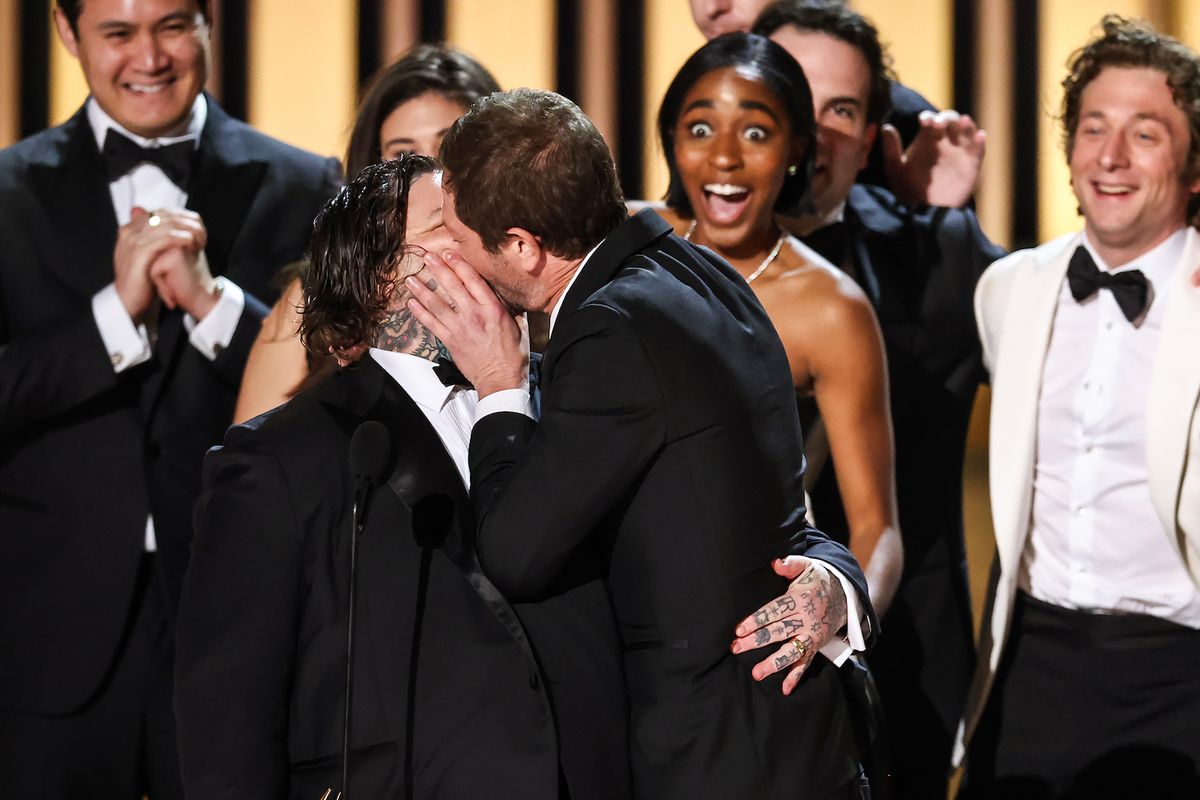






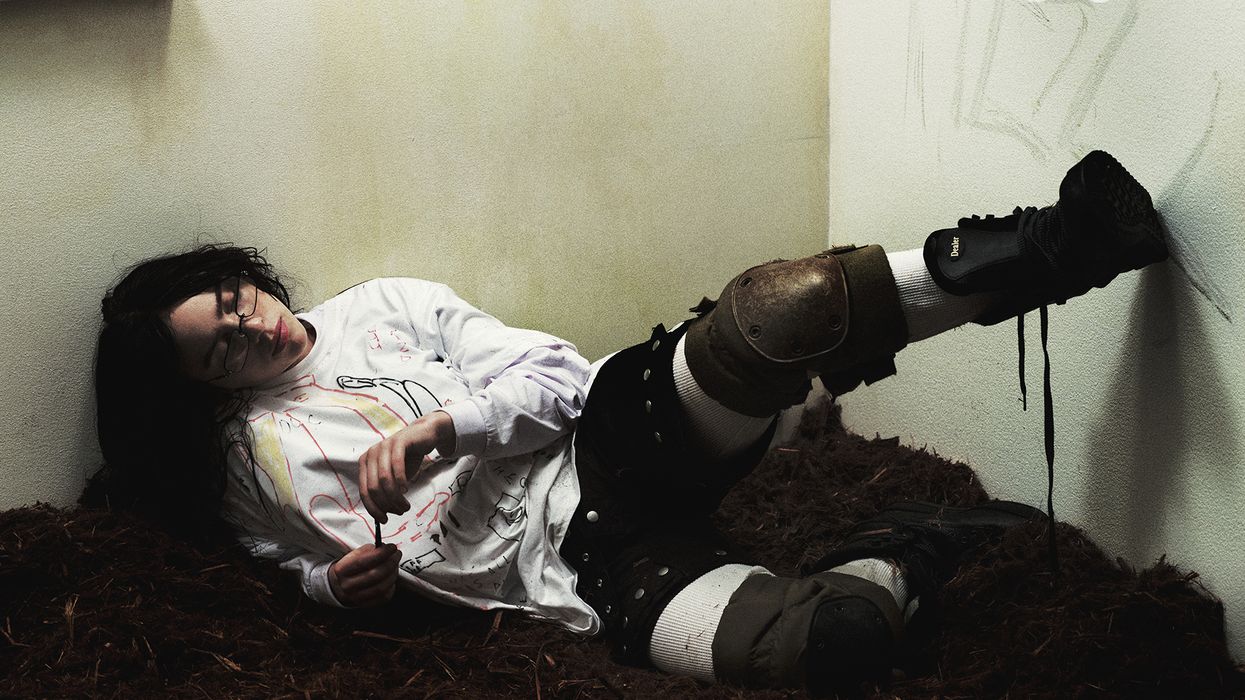
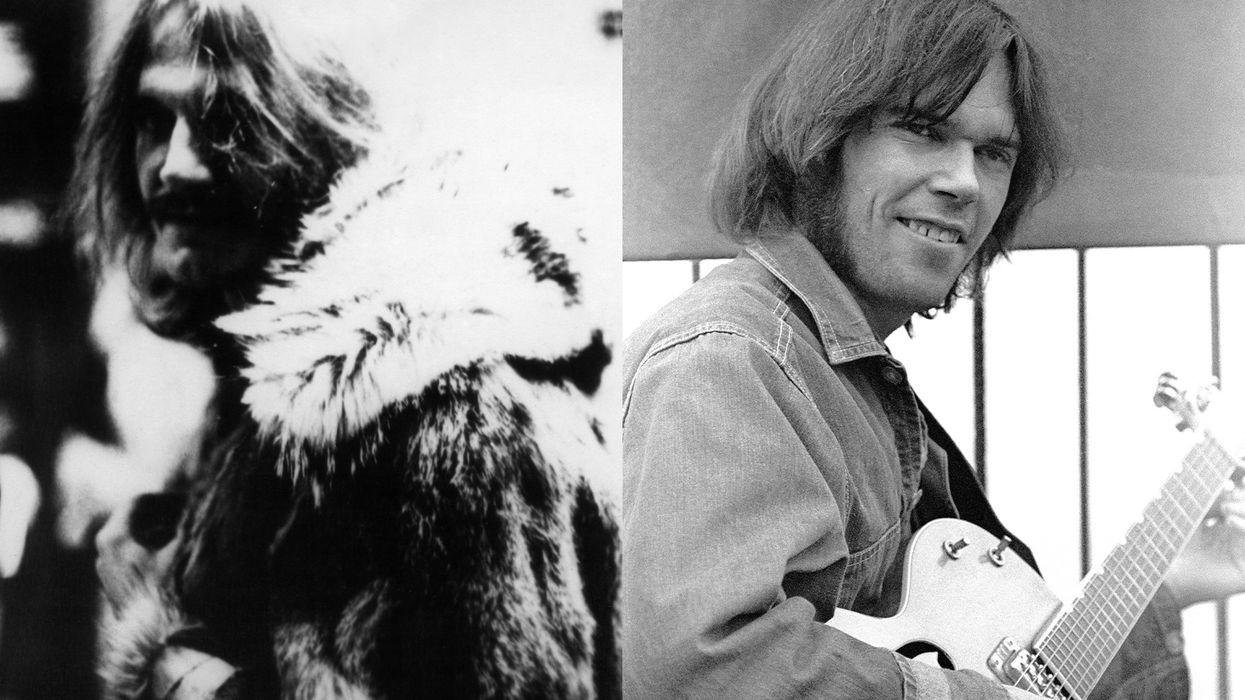
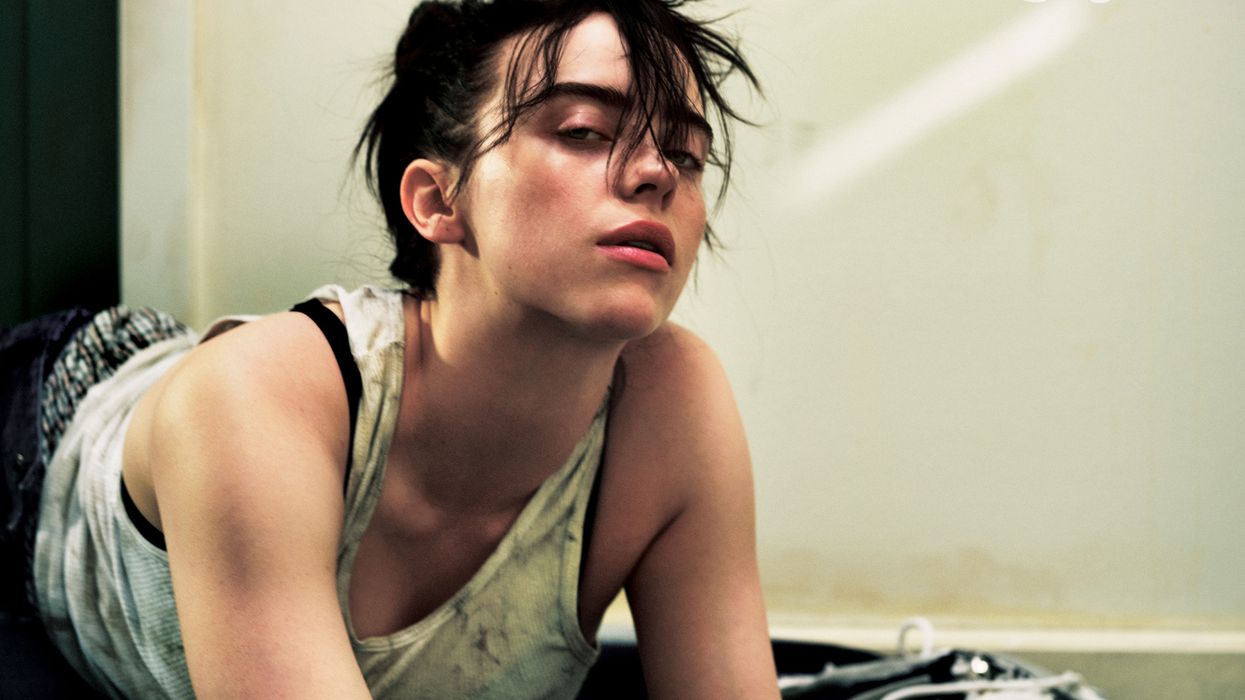



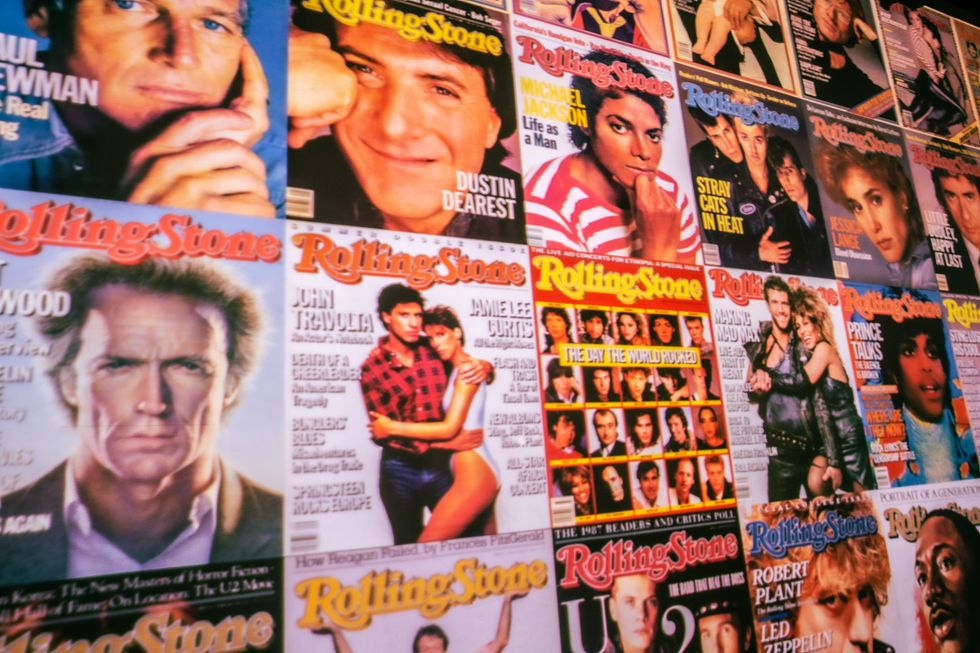
 Catering Presented By The Food DudesPhoto by Snapdrg0n
Catering Presented By The Food DudesPhoto by Snapdrg0n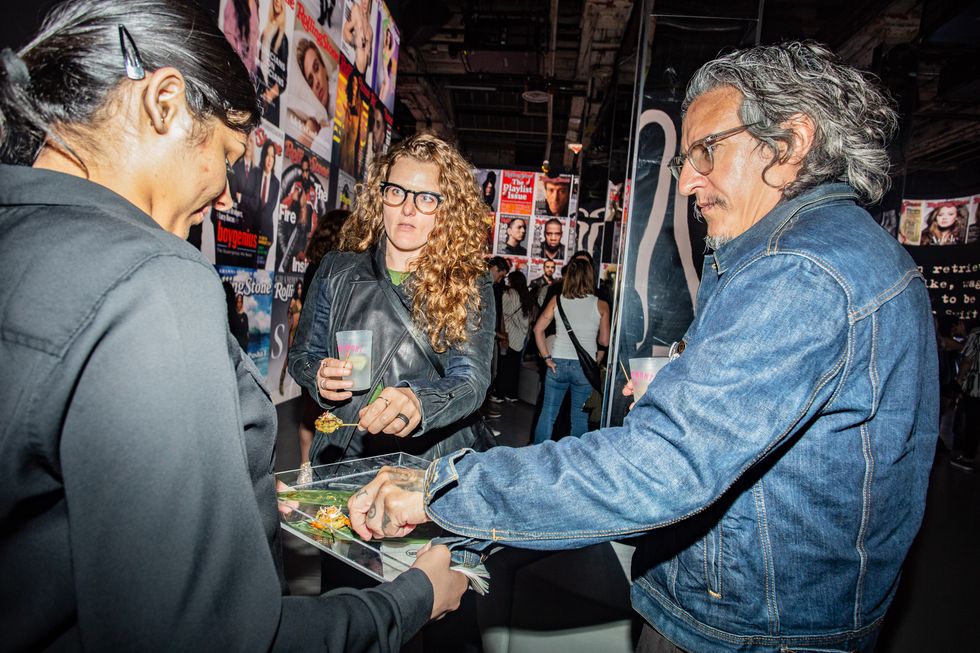 Catering Presented By The Food DudesPhoto by Snapdrg0n
Catering Presented By The Food DudesPhoto by Snapdrg0n Catering Presented By The Food DudesPhoto by Snapdrg0n
Catering Presented By The Food DudesPhoto by Snapdrg0n
 Photographer: Raphaëlle Sohier / Executive production: Elizabeth Crisante & Amanda Dorenberg / Design: Alex Filipas / Post-production: Bryan Egan/ Headpiece: Tristan Réhel
Photographer: Raphaëlle Sohier / Executive production: Elizabeth Crisante & Amanda Dorenberg / Design: Alex Filipas / Post-production: Bryan Egan/ Headpiece: Tristan Réhel Photo: Raphaëlle Sohier
Photo: Raphaëlle Sohier Photo: Raphaëlle Sohier/ Photo production: Bryan Egan/ Blazer:
Photo: Raphaëlle Sohier/ Photo production: Bryan Egan/ Blazer:  Photo: Raphaëlle Sohier/ Blazer: Vivienne Westwood/ Skirt :
Photo: Raphaëlle Sohier/ Blazer: Vivienne Westwood/ Skirt : 

